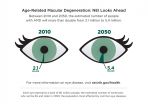(Press-News.org) A total ban on trans fatty acids (trans fats) in processed foods in England could potentially prevent or postpone about 7,200 deaths from coronary heart disease over the next five years, suggest experts in The BMJ this week.
They say a total ban in England is "technically feasible" and they call for "decisive action" to prioritise the most effective and cost effective policy options.
Industrial trans fatty acids are produced from plant oils (a process known as hydrogenation) and are commonly added to processed foods to cheaply improve shelf life and palatability.
Higher intake of these fats is associated with increased risk of coronary heart disease and death, and consumption is generally higher in lower socioeconomic groups. Their elimination from the UK diet is part of the Department of Health's responsibility deal.
So a team of researchers decided to evaluate three policy options to reduce consumption of trans fats in England: a total ban on trans fatty acids in processed foods; improved food labelling; and bans on trans fatty acids in restaurants and takeaway outlets.
They calculated health and equity benefits and cost effectiveness of each policy compared with consumption remaining at most recent levels. Influential factors such as age, sex, and socioeconomic status were taken into account.
Guidelines currently recommend that trans fats are limited to less than 1% of energy intake. The researchers calculated that average consumption of trans fatty acids among UK adults in 2001-09 to 2011-12 was around 0.7% of energy intake. For the most disadvantaged groups, consumption was higher, around 1.3%.
The researchers found that a total ban on industrial trans fatty acids in processed foods in England might potentially prevent or postpone about 7,200 deaths (2.6%) from coronary heart disease from 2015-20 and reduce inequality in mortality from coronary heart disease by about 3,000 deaths (15%).
This inequality stems from the fact that early death from coronary heart disease is substantially higher among the most disadvantaged socioeconomic groups compared with the most affluent.
Policies to improve labelling or simply remove trans fatty acids from restaurants and takeaways could save between 1,800 (0.7%) and 3,500 (1.3%) deaths from coronary heart disease and reduce inequalities by 600 (3%) to 1,500 (7%) deaths, thus making them at best half as effective.
A total ban would also have the greatest net cost savings of £264m excluding product reformulation costs, or £64m if substantial reformulation costs are incurred.
"Elimination of trans fatty acids from processed foods is an achievable target for public health policy," say the authors. Such a ban "would lead to health benefits at least twice as large as other policy options, both in terms of total population benefit and reduction in inequality."
They suggest that continuing to rely on industry cooperation via the responsibility deal "might be insufficient" and call for "decisive action" to prioritise the most effective and cost effective policy options.
There's nothing good about industrial trans fats and a total ban would be best for public health, argues Lennert Veerman from the University of Queensland's School of Public Health, in an accompanying editorial.
"Given the clear evidence on the health impact of trans fats and what we know about consumption patterns, rates of heart disease, and related economic costs in England, we can safely conclude that these actions to accelerate the removal of industrial trans fat from the food supply are good for health, cost saving, and equitable," he writes.
INFORMATION:
Public Health England (PHE) recently endorsed the use of electronic cigarettes as an aid to quitting smoking. But in The BMJ this week, experts question the evidence on safety and effectiveness underpinning the recommendations.
Professor Martin McKee at the London School of Hygiene & Tropical Medicine and Professor Simon Capewell at the University of Liverpool, argue that the available evidence about e-cigarettes "suggests that the debate is far from over and questions remain about their benefits and harms."
The PHE report concludes that e-cigarettes are much safer ...
The reason why middle class people are more likely to play music, paint and act has been revealed in a major new study.
Research involving 78,000 people found that it was not wealth or social status that were strongly linked to people taking part in arts activities as amateurs or professionals.
Instead, it was the level of education that lay behind arts participation, the study by Dr Aaron Reeves, a sociologist at the University of Oxford, found.
In an article in the journal Sociology, Dr Reeves said that of the 78,011 surveyed, 18% had taken part in painting or ...
A study of 6467 children from England--presented at this year's annual meeting of the European Association for the Study of Diabetes (EASD) in Stockholm--shows that no access to a garden at age 3-5 years is linked to an increased risk developing obesity by age 7 years. The research is by Annemarie Schalkwijk, VU University Medical Centre, Amsterdam, the Netherlands, and colleagues.
Overweight and obese children are at increased risk of becoming overweight and obese adults and therefore being overweight or obese in childhood is an important risk factor for developing ...
A meta-analysis of 21 studies presented at this year's annual meeting the European Association for the Study of Diabetes (EASD) shows that exposure to pesticides is associated with increased risk of developing diabetes by 61%, with different types of pesticides showing varying levels of risk. The study is by Giorgos Ntritsos, University of Ioannina, Greece, and Dr Ioanna Tzoulaki and Dr Evangelos Evangelou, Imperial College London, UK, and colleagues.
How diabetes develops is considered to be an interplay between genetic and environmental factors. Emerging evidence suggests ...
New research presented at this year's annual meeting of the European Association for the Study of Diabetes in Stockholm shows that a 10-times increased exposure to organic pollutants in early pregnancy is associated with a 4.4 times increased risk of a pregnant woman developing gestational diabetes. The research is by Assistant Professor Leda Chatzi, University of Crete, Heraklion, Greece.
Persistent Organic Pollutants (POPs) are a group of diverse substances, including polychlorinated biphenyls (PCBs) and organochlorine pesticides that are resistant to biodegradation ...
On Sept. 13, 2015, the Solar and Heliospheric Observatory -- a joint project of the European Space Agency and NASA -- discovered its 3,000th comet, cementing its standing as the greatest comet finder of all time. Prior to the 1995 launch of the observatory, commonly known as SOHO, only a dozen or so comets had ever even been discovered from space, while some 900 had been discovered from the ground.
The 3,000th comet was originally spotted in the data by Worachate Boonplod, of Samut Songkhram, Thailand.
"I am very happy to be part of a great milestone for SOHO's comet ...
UNIVERSITY PARK, Pa. -- Asking just two questions may be able to help nurses and doctors quickly and easily identify delirium in hospitalized older adults, according to health researchers.
Delirium is a reversible cognitive condition that can be resolved if caught and treated early.
"Delirium can be very costly and deadly -- and with high-risk patients, time matters," said Donna M. Fick, Distinguished Professor of Nursing and co-director of the Hartford Center of Geriatric Nursing Excellence at Penn State. "Our ultra-brief two-item bedside test for delirium takes an ...
According to a NASA analysis of satellite data, the 2015 Arctic sea ice minimum extent is the fourth lowest on record since observations from space began.
The analysis by NASA and the NASA-supported National Snow and Ice Data Center (NSIDC) at the University of Colorado at Boulder showed the annual minimum extent was 1.70 million square miles (4.41 million square kilometers) on Sept. 11. This year's minimum is 699,000 square miles (1.81 million square kilometers) lower than the 1981-2010 average.
Arctic sea ice cover, made of frozen seawater that floats on top of the ...
Earth's gravity has influenced the orientation of thousands of faults that form in the lunar surface as the moon shrinks, according to new results from NASA's Lunar Reconnaissance Orbiter (LRO) spacecraft.
In August, 2010, researchers using images from LRO's Narrow Angle Camera (NAC) reported the discovery of 14 cliffs known as "lobate scarps" on the moon's surface, in addition to about 70 previously known from the limited high-resolution Apollo Panoramic Camera photographs. Due largely to their random distribution across the surface, the science team concluded that the ...
People with a genetic predisposition for age-related macular degeneration (AMD) significantly increased their odds of developing the blinding eye disorder if they had a history of heavy smoking and consistently did not exercise or eat enough fruits and vegetables, according to an observational study of women funded by the National Eye Institute, part of the National Institutes of Health.
Eating a healthy diet and getting exercise have been shown in earlier studies to protect against AMD, a leading cause of vision loss among people age 50 and older. Findings from this ...



